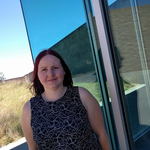4 tips to set learning objectives and achieve them
With the beginning of a new year, many of us are setting objectives, including ones regarding language learning. Learning a new language or improving one we have already studied are common goals. They are great and exciting, we get to learn about a new culture, we’re able to communicate in that language, and maybe to travel where it is spoken and use it (ideally).
Seeing students excited at the idea of learning French is one of the many reasons why I love teaching languages. However, I have seen many language students lose their excitement because they feel that they are not achieving their goals. Often this is due to their linguistic goals/learning objectives being too vague, which in turns leads to students believing that they are not making progress towards their goal(s) even if that is far from the case! To prevent this from happening, I suggest establishing clear, pragmatic goals that are realistic.
1. Before establishing your objectives, try to answer these questions:
- Why do you want to learn that language? Your end goal will help you focus on a specific aspect of the language and identify specific skills you need to reach that goal. Whether it is for future travels or because you want to read that one book you love in its original language, the focus, and skills needed will vary a lot!
- What is your learning style? This one can be difficult to answer. There are a lot of different ways to learn a language – you can focus on a traditional approach with a heavy focus on grammar and exercises, you can privilege an immersion approach, you can base your learning on games. Find one that you enjoy and it will keep you motivated and won’t feel like a drag!
2. Think in terms of specific themes
If you are learning a language for work, focusing on how to write a formal email would be a good example. If you are interested in watching movies, focusing on listening skills might be more appropriate. If you want to travel, focusing on asking basic questions would be more useful.
3. Keep a timeline
This one is though, especially if you have many other things going on but having a clear timeline can help you keep track of your studies and will help you see your progress and keep you motivated. With a timeline, you can have both the big picture and realistic goals.
4. Find ways to evaluate your progress in appropriate ways
The best way to see progress is to evaluate yourself. There are many language tests available online that can help you with that. You can also test your progress with exercises that test your understanding of an audio file or a short text on a specific subject you’ve been working on.
10 janvier 2018





